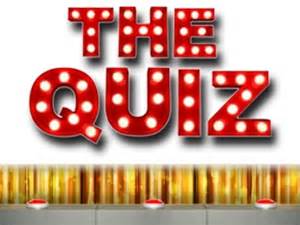Welcome to Friday and the 280th legal ethics quiz!
A few years ago, Andrew Manitsky and I did a series of CLEs on the duty of candor in negotiations. We often discussed “paltering,” which is the active use of the truth to deceive. As an example, check out this post about the time that Jennifer Emens-Butler and I paltered to fellow lawyers at a VBA meeting.
Or consider this:
I’ve seen Taylor Swift live in concert.
100% true statement.
Alas, a potential ethics violation. Let me explain.
Paltering’s tie to legal ethics is through Rules 4.1 and 8.4. Rule 4.1 states that “in the course of representing a client a lawyer shall not knowingly make a false statement of fact or law to a third person.” A comment makes clear that “misrepresentations can . . . occur by partially true but misleading statements or omissions that are the equivalent of affirmative false statements.”
So, back to my statement: I’ve seen Taylor Swift live in concert.
Again, true.
But, after you check out my ticket stub, I’ll let you decide whether my statement violates Rule 4.1.
As the warm-up to the warm-up, I think she played 4 or 5 songs. But I saw them!
Now, speaking of Taylor Swift concerts[1], I’m smack dab in the middle of CLE season. Yesterday I presented to the Chittenden County Bar Association. As I’ve been doing, I asked if anyone had gone or plans to go to a Taylor Swift Eras Tour concert. After all these weeks of CLE, finally a “yes!!” The lawyer has tickets for the July 1 show in Cincinnati. The news made me wonder if I should use today’s intro to share my favorite Era.
I’m not going to. Honestly, it’s too daunting. Seriously. A few years ago, when a buddy asked my all-time favorite Red Sox player, I agonized trying to decide. Like, literal heartburn!! As a grown man!! Over something that should be of ZERO consequence to anyone older than 13.
In short, my fandom is complicated. Which is why, for now, I’m not committing to a favorite Era.
Here’s what I will commit to: Reputation is in my top 3. Also, I can say beyond a reasonable doubt that, if I were to attend a show, I’d hope that Getaway Car was one of the two “surprise songs.[2]” It’s (likely) my favorite of her songs and I’m pretty sure I lived the lyrics from the perspective of the person she sings to. Also, I think it would be AWESOME if Picture to Burn was a surprise song. After all, it’s the only song I remember from that time that . . .
I saw Taylor Swift live in concert.
Onto the quiz!
Rules
- None. Open book, open search engine, text-a-friend.
- Exception: Question 5. We try to play that one honestly.
- Unless stated otherwise, the Vermont Rules of Professional Conduct apply.
- Team entries welcome, creative team names even more welcome.
- E-mail answers to michael.kennedy@vermont.gov
- I’ll post the answers & Honor Roll on Monday
- Please consider sharing the quiz with friends & colleagues
- Share on social media. Hashtag it – #fiveforfriday
Question 1
This week’s picture question features Dwight Schrute from The Office. Later today, I’m using the picture during a CLE. Which of the 7Cs of Legal Ethics do you think I’ll be addressing when this slide is on the screen?
Question 2
If a lawyer in a private firm has a conflict, is the conflict imputed to all other lawyers in the firm?
- A. No. Vermont’s rule allows the firm to screen the lawyer, no matter the type of conflict.
- B. Yes. Vermont’s rule does not allow for screening in any situation.
- C. Yes, unless the conflict arises from a personal interest of the disqualified lawyer that does not create a significant risk of materially limiting the representation of the client by another lawyer in the firm. In this situation, Vermont’s rules allow screening.
Question 3
The duty of candor to a tribunal requires a lawyer to take “reasonable remedial measures” upon learning that a client or a witness called by the lawyer presented false evidence. A comment suggests that the first step is to:
- A. Consult with the client about correcting the falsehood.
- B. Move to withdraw.
- C. Disclose the falsehood to the tribunal.
- D. Ask the court to meet in camera, without opposing counsel present.
Question 4
Lawyer, a civil litigator, called with an inquiry. I listened, then responded:
“If it’s to gain an advantage, don’t do it, don’t threaten to do it, don’t participate in doing it.”
Do what?
Question 5
Later today, I’m presenting a CLE for the Federal Bar Association. The topic is “Legal Ethics in Criminal Practice.” The audience will consist of criminal defense lawyers and federal prosecutors. Which made me think of this question.
The first person ever to win 4 consecutive Emmy Awards won them for Outstanding Supporting Actor in a Comedy. The awards reflected the actor’s work playing an assistant district attorney on a show that aired from 1984-1992. The actor also appeared in the 2023 sequel, this time as a public defender. In the sequel, the judge is the daughter of the judge from the original. Sadly, to me, the original bailiff is not in the sequel. Oooo-kay.
Name the show.
Bonus: Name the actor who won 4 Emmys in the original.
[1] Or, perhaps, “Speak[ing] Now of Taylor Swift concerts.”
[2] The Eras Tour set-list includes 44 songs that span the albums – Eras – of her career. 42 songs are the same each show. Each show includes two “surprise songs.” Songs that are not otherwise in the set-list and that Swift performs acoustically. Surprise Songs are not repeated at other shows. So, I’m out of luck. For one, I don’t have plans to attend a show. For another, even I was to magically obtain a ticket, Getaway Car, was a “surprise song” at one of the NYC shows.














